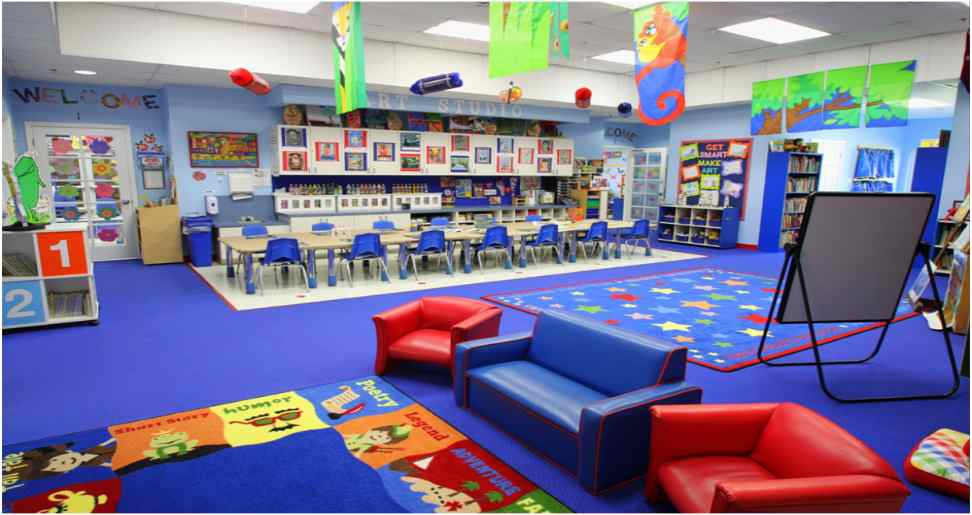As children transition from the comfort of home to the structured environment of kindergarten, the role of a daycare school becomes pivotal in laying a strong foundation for their educational journey. Daycare schools offer more than just child care; they provide a comprehensive learning environment that fosters developmental skills essential for kindergarten readiness. This article explores how daycare schools contribute to preparing children for their educational milestones.
Daycare School: A Foundation for Early Learning
Daycare schools play a crucial role in the early stages of a child’s development. Unlike traditional day care centers, which may primarily focus on basic supervision and care, daycare schools integrate educational activities into their daily routines. This approach ensures that children are not only cared for but are also engaging in activities that stimulate their cognitive, social, and emotional growth.
Structured Learning Environments
Daycare schools typically offer a structured environment that introduces children to routines similar to those they will encounter in kindergarten. This includes regular schedules, circle time, and organized activities that help children adapt to a more formal learning setting. By establishing these routines early, children develop a sense of predictability and stability, which eases the transition to kindergarten.
Early Literacy and Numeracy Skills
One of the primary focuses of daycare schools is to foster early literacy and numeracy skills. Through age-appropriate activities such as storytime, interactive games, and simple math exercises, children begin to build a foundation in reading and math. These early skills are critical as they provide the building blocks for more advanced concepts taught in kindergarten.
Socialization and Emotional Development
Daycare schools also emphasize the development of social and emotional skills. Children learn to interact with peers, share, and resolve conflicts in a group setting. These interactions are essential for building social competence and emotional resilience, which are key to a successful transition to kindergarten. Daycare schools often incorporate activities that promote teamwork, empathy, and self-regulation, preparing children for the social dynamics of a kindergarten classroom.
Child Care: More Than Just Supervision
While the term “child care” often brings to mind basic supervision and safety, high-quality child care encompasses much more. Effective child care provides a nurturing environment that supports a child’s overall development, making it an integral part of preparing for kindergarten.
Individualized Attention and Support
In a daycare school setting, child care extends beyond mere supervision to include individualized attention. Educators and caregivers in daycare schools are trained to recognize each child’s unique needs and developmental stage. This personalized approach ensures that children receive the support they need to thrive academically, socially, and emotionally. By addressing individual strengths and areas for growth, daycare schools help prepare children for the diverse demands of a kindergarten curriculum.
Encouraging Independence and Self-Care Skills
Daycare schools play a significant role in teaching children essential self-care skills and fostering independence. From learning to manage personal belongings to developing basic hygiene routines, these skills are crucial for children to navigate the kindergarten environment successfully. Daycare schools often incorporate activities that encourage children to practice self-help skills in a supportive setting, ensuring they are well-prepared for the increased responsibilities of kindergarten.
Building Confidence and Resilience
The transition to kindergarten can be challenging for many children, but daycare schools help build confidence and resilience. Through positive reinforcement, encouragement, and a supportive learning environment, children gain the self-esteem needed to face new experiences with a positive attitude. Daycare schools provide a safe space for children to take risks, make mistakes, and learn from them, fostering a growth mindset that is beneficial in a kindergarten setting.
Conclusion
The role of daycare schools in preparing children for kindergarten is multifaceted and vital. By providing a structured learning environment, fostering early literacy and numeracy skills, promoting social and emotional development, and offering individualized attention and support, daycare schools lay a strong foundation for a child’s educational journey. Additionally, effective child care practices within these settings help children develop independence, confidence, and resilience, further smoothing the transition to kindergarten. As parents and educators work together to support children during these formative years, the contributions of daycare schools in preparing children for kindergarten cannot be overstated.
Read more:
- Tips To Keep It Together During Divorce
- Enhance Comfort and Efficiency: The Essential Guide to HVAC Systems
- What Is The Difference Between Die Casting & Plastic Injection Molding?

